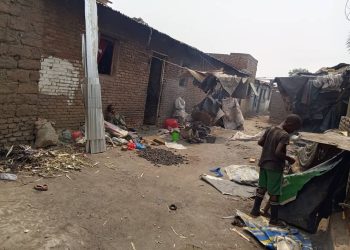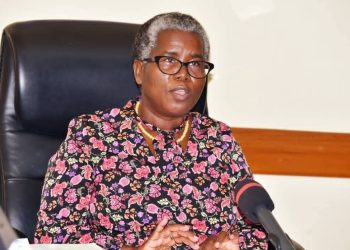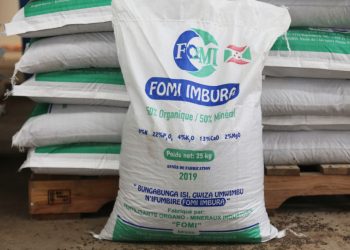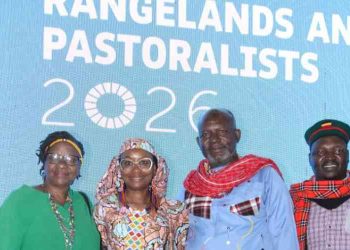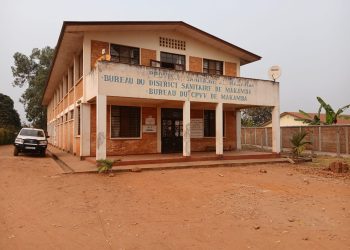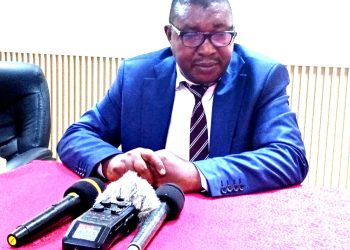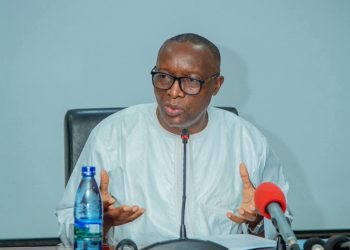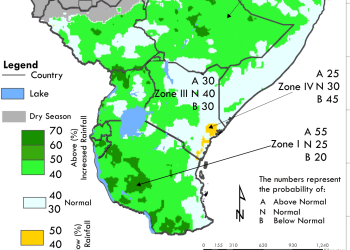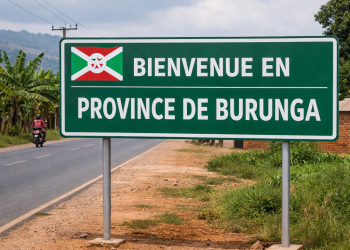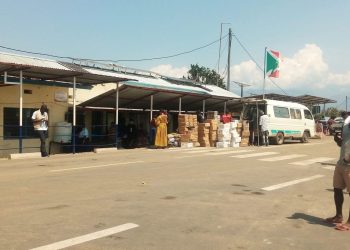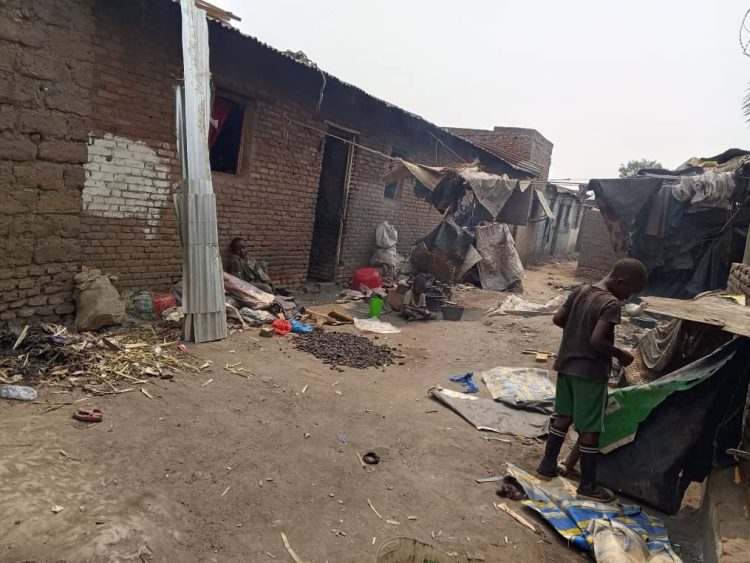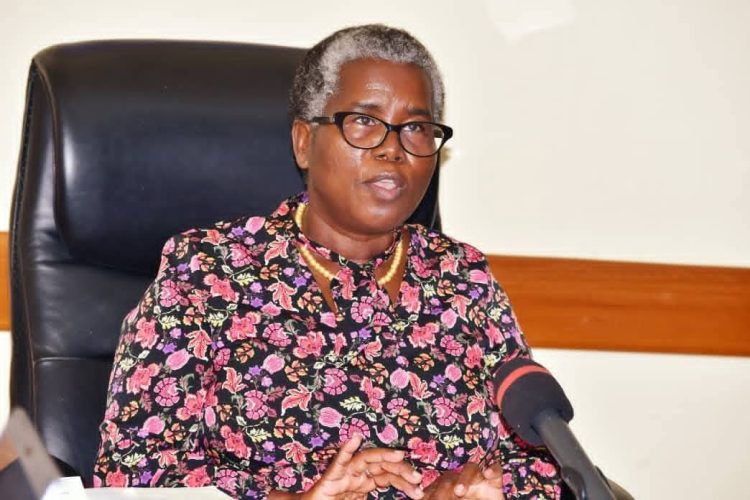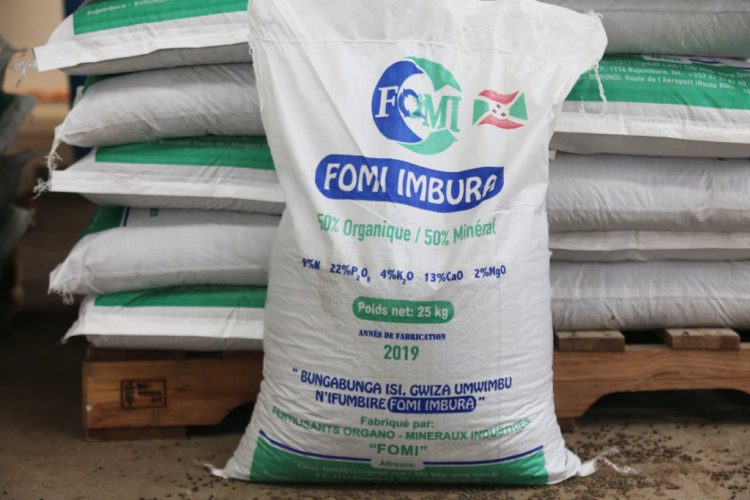By Avit Ndayiziga
Dr. Sylvie NZEYIMANA, the Minister of Public Health and the Fight Against AIDS has reported that the country has registered enormous progress for the past three years in the fight against AIDS/HIV while presenting a review of the National Plan for the Fight against AIDS of 2018-2022.

The stepped-up efforts made since 2018 have bore fruits three years later as Burundi stood among one of the countries to have significantly contained the infectious virus.
“Burundi has emerged as a leader in the fight against HIV/AIDS in West and Central Africa region that covers on average 68.72 percent of people receiving antiretroviral treatment for HIV/AIDS, thanks to the Government’s commitment and financial support from health partners,” said Dr. Sylvie NZEYIMANA, the Minister of Public Health and the Fight Against HIV/AIDS, while assessing the National Plan for the Fight against AIDS of 2018-2022 on March 15th, 2022, at the King’s Conference Center in Bujumbura Capital City.
Dr. NZEYIMANA while presenting the review of the National Plan for the Fight against AIDS of 2018-2022 Report, said that the Burundian government remains steadfast in its commitment to achieving a Burundi with no more cases of HIV infections and AIDS-related morbidity or mortality by 2030.
“The ultimate objective is to ensure universal access to HIV prevention, care, support, and treatment. To this end, the Government has allocated both financial and technical resources to intensify efforts aimed at preventing new HIV infections and detecting new cases of HIV-positive individuals”. The public health and the fight against AIDS noted.
According to her, Vulnerable groups such as prisoners, fishermen, young people under 25 years old, and married couples living with HIV were top priorities while implementing the national plan against AIDS.
“We have delivered to them a clear message centered on four key aspects: behavior change communication, screening, promotion of condom use, and infection management. Additionally, we have strengthened our efforts to prevent mother-to-child transmission of HIV”’. The Minister added.
The Minister continued by saying that all the steps that the Burundian Government has taken are in line with the 90-90-90 target: treatment for all, a UNAIDS target aimed at ensuring that by 2020, 90% of people living with HIV knowing their HIV status; 90% of people who know their status on treatment; and 90% of people on treatment with suppressed viral loads. The prevalence of HIV in Burundi also declined significantly from 5.3 in 1992 to 1 in 2019
Thus, this ambitious yet attainable goal has been met with remarkable success in Burundi. As of the end of 2020, a remarkable 89% of individuals living with HIV were aware of their status, with an impressive 98% receiving ARV treatment and 90% achieving viral load suppression.
Burundi, a champion in curbing HIV infections
With this unprecedented achievement, Burundi establishes itself as an example for treatment and prevention of HIV/AIDS in western and central African regions that on average 68.72 percent of people receiving antiretroviral treatment for HIV/AIDS, whereas the Republic of Congo lags behind with only 22 % and Gambia similarly faring modestly at 32% by 2020
Since 1997, the Government and external partners have worked together to expand ARV treatment in Burundi.
In the decade between 2010 and 2019, HIV-positive individuals on ARVs grew from 22,735 to 69,937
Additionally, there is a notable increase in the number of mothers receiving prevention of Mother-to-Child Transmission of HIV from 2617 to 3721, with a corresponding rise in sites providing these services from 119 to 915 during this same period.
Satisfied beneficiaries testify
Gerardine Nduwimana, a mother living with HIV, and two children, a resident of the low-income northern areas of Bujumbura, the capital city of Burundi, shares how the prevention of Mother-to-Child Transmission of HIV saved her one-year-old beloved daughter from HIV infection.
“I got married in 2017, and my husband and I were not infected with HIV. We gave birth to our first son in 2018. However, I was shocked when I tested positive for HIV during my second pregnancy prenatal check-up in 2021. The doctors assured us that our child would be protected against it and advised us to start using ARV medication to keep our antibodies strong to prevent us from HIV opportunistic infections. I couldn’t believe it until it was successfully done. I thank God,” Gerardine said.
Key stakeholders have played an active role
The success above outlined can be attributed to several factors. The Burundian government, First Lady, WHO, Global Fund, PEPFAR(President’s Emergency Plan for AIDS Relief), and healthcare providers have all played a crucial role in effectively combating HIV/AIDS. They have achieved this by decentralizing services and implementing World Health Organization strategies for prevention and treatment.
In addition to the support from community entities, the success outlined above was also fueled by monetary aid from the aforementioned contributors.
This gathering brought together representatives from the WHO national and global specialists, government officials from the Ministry of Public Health and Fight against HIV/AIDS, expert contributors, and monetary partners. Together, they were able to discuss the challenges encountered during the implementation of the National Plan for the Fight against AIDS of 2018-2022, provide practical ideas for achieving desired goals, and develop a new all-inclusive HIV/AIDS national strategy.
Representatives from various organizations such as UNAIDS, Expertise France, and WHO warmly praised Burundi’s performance for the years 2018-2022 and expressed their satisfaction with the outcomes.
“Burundi’s successful approaches and strategies in reducing new HIV infections and AIDS-related deaths in West and Central Africa should be disseminated to other countries that are still struggling to make progress.”Expertise France’s delegate noted.
The fight is not yet over, says the minister
Despite receiving messages of congratulations for the positive results achieved, Dr. Sylvie NZEYIMANA, the Minister of Public Health and the Fight Against AIDS, emphasized that the fight against HIV/AIDS must continue to reach the new UNAIDS fast-track strategy of 95-95-95 for treatment by 2030. This strategy envisions that 95% of people living with HIV know their HIV status, 95% of people who know their status are on treatment, and 95% of people on treatment have suppressed viral loads. The goal is to reduce the annual number of new HIV infections among adults to 200,000 and achieve zero discrimination.
Dr. Sylvie NZEYIMANA, the Minister of Public Health and the Fight Against AIDS, highlighted at this point that a new national and strategic plan to battle AIDS would shortly be prepared to reach a Burundi free from new HIV infections and AIDS-related illnesses or fatalities by 2030.
She also highlighted the severe consequences of AIDS on health, education, social norms, and population growth, which can hinder a nation’s economic growth and social progress.
WHO recommandation
It is crucial to emphasize that the World Health Organization (WHO) recommends that all nations implement national guidelines for antiretroviral therapy in managing HIV/AIDS. This involves advocating for the utilization of HIV testing and counseling services for primary prevention, integrating services related to HIV treatment and care, enhancing drug and commodity supplies, strengthening laboratory capacity, addressing human resource implications, improving strategic information systems, and increasing financial resources to expand antiretroviral therapy.


